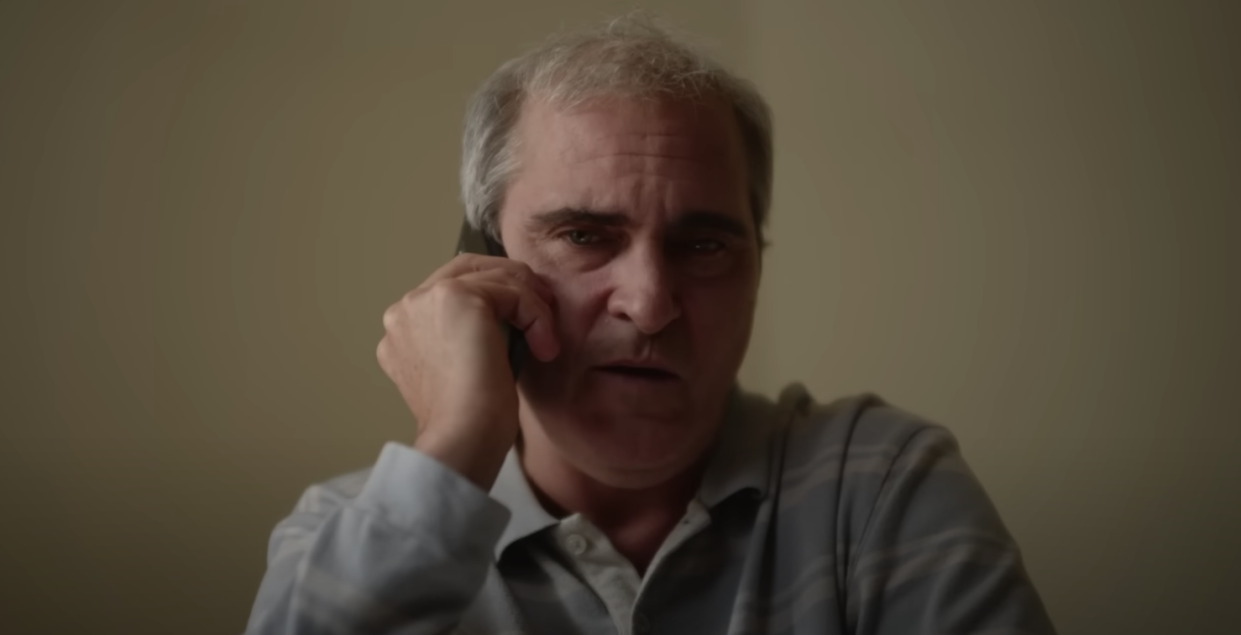‘Beau Is Afraid’ Ending Explained: Inside the Meta Twist of Ari Aster’s Dark Comedy

- Oops!Something went wrong.Please try again later.
[Editor’s note: This story contains major spoilers for “Beau Is Afraid.”]
The titular protagonist of “Beau Is Afraid” endures a lot of trauma. As embodied by Joaquin Phoenix in a permanent state of shock and dread, the character inhabits an apartment surrounded by hooligans and street urchins all too eager to overtake his apartment, which has been infested by deadly spiders. Moments later, he learns that his mother (Patti LuPone) has died after her head was crushed by a fallen chandelier — and shortly after that, he’s hit by a truck and assaulted on the street by a naked man wielding a knife.
More from IndieWire
'The Super Mario Bros. Movie' and 'Evil Dead Rise' Continue the Box-Office Resurrection
Joaquin Doesn't Want You to Take Mushrooms Before Watching 'Beau Is Afraid'
And that’s just the first act.
As poor Beau stumbles through an Oedipal labyrinth of unsettling twists, he simply can’t catch a break. He’s kidnapped, chased through the woods, lost in a dreamscape, late to his mother’s funeral, and berated by her when it turns out she faked her death just to see if he really cared about her. Perhaps worst of all, he barely has any time to process that information before he’s betrayed by his therapist.
Beau’s nightmarish journey navigates a tricky line between utter discomfort and hilarity right down its final passage, which is its strangest twist of all: Stumbling out of his mother’s home, he boards a motorboat and rides into the shadowy night, eventually arriving at the center of a stadium surrounding the water. It’s there that he finds himself on trial for the apparent mistreatment of his mother, as her lawyer (Richard Kind) stands next to her and reads out his crimes. The arena is packed with spectators who seem riveted by Beau’s offenses, which play out in the water.
With his guilt proven, Beau stares down at a spark on the boat’s engine, and it explodes — flipping over, presumably killing him. As it floated in the murky waves, the audience files out, and the credits roll.
On the surface, the bizarre sequence functions as a twisted homage to Albert Brooks’ 1991 comedy “Defending Your Life,” in which the writer-director-star plays a recently deceased man forced to watch moments from his lifetime and make the case for going to heaven. But it’s more than that: Aster is also making an explicit statement about the nature of spectatorship and the way that audiences derive pleasure for other people’s pain. The foundation for that argument is established early in the movie, moments after Beau leaves his therapist’s office, and comes across a crowd of giddy people watching a suicidal man standing on the ledge of a building. As one of the onlookers records the man with his phone, he tells Beau, “We’re trying to get him to jump!”
As Beau proceeds through his disturbing journey, Aster enables the audience to similarly derive entertainment value from the dark proceedings. It’s a sly, meta critique of the whole filmmaking endeavor. “Hopefully, it feels in some ways like a mirror,” Aster told IndieWire in an interview earlier this month. He added that the final stadium showdown, shot entirely on a green screen, resulted in the costliest part of the $35 million shoot. “It was a very long, arduous process,” he said.
But it almost didn’t wind up there at all. Kind recently told The Daily Beast that another actor was originally cast in the part, which called for a five-page monologue at the end of the movie. He added that the original ending found Beau’s mother sobbing and dragged out of the room. Instead, she leaves in silence, likely because Aster preferred to twist the knife over a more sympathetic conclusion.
However, Aster originally led his woeful anti-hero in a very different fate. The writer-director originally circulated a script for “Beau Is Afraid” almost a decade ago, long before his 2018 debut “Hereditary.” In the earlier draft (which was about an hour shorter on the page than the final version), Beau sails into the open sea and finds himself surrounded by pure tranquility. For a moment, he appears to have escaped his problems once and for all. Then he notices a cruise ship heading his way that has a fictionalized version of Michelle Obama (identified as “Michelle Obama”) leading an exercise onboard, and it’s heading in his direction. Yes, really.
In contrast to that ending, the final climax of “Beau Is Afraid” is downright literal — or, at least, a reasonable destination for a movie that seems to take place entirely within the guilt-ridden head of its very anxious protagonist.
An A24 release, “Beau Is Afraid” is now in theaters everywhere.
Best of IndieWire
Where to Watch This Week's New Movies, from 'Beau Is Afraid' to 'Evil Dead Rise' and More
The 23 Best Nude Scenes in Film, from 'Shortbus' to 'Blue Velvet'
Sign up for Indiewire's Newsletter. For the latest news, follow us on Facebook, Twitter, and Instagram.

